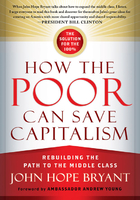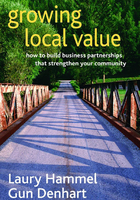Part One Coming Apart
Loneliness gnaws at the essence of who we were. The hunger for connection with the outside world is what, in the end, turns us callous, creating delusions that we are better off lonely.
-Abraham Macias,* Pelican Bay Prison
When my parents and I visit Cook County Jail for the first time in February 2009, it is a Saturday and the place is jam-packed. We squeeze into the slow-snaking security line, which curves around several ropes and bumps up against the doorway. Some visitors stare at their feet, hands stuffed in their pockets, trudging forward every few minutes when the line loosens. Others shout to their children to stay within the roped boundaries, fearing that they'll be booted out for causing a disturbance. A thin, shivering woman standing in front of us is shaking her head over and over, rocking a blanket-covered baby in her arms.
As we inch closer to the metal detector, a guard pulls a tall young woman off to the side, gesturing to her short skirt and scoffing, "You think you can come in here like that? Huh?" After a few hesitant protests-"Sorry, sorry, I didn't know"-she walks away slowly, toward the exit, face in her hands. We follow commands, removing our shoes and socks, stepping through the metal detector, raising our arms for the pat-down, following the officer who escorts us across the yard.
After a three-hour wait, we're called into the visiting room, and we file through the narrow door. It's a short, dim corridor lined with wobbly stools facing a thick wall of plexiglass with several barred holes. On the other side of the plexiglass, Kayla shuffles in with a few other women. They scrunch down in a row, each opposite their visitors, and lean toward the holes. We start talking-well, screaming-back and forth. We don't scream because we're fraught with emotion, though we are. We scream because we can't be heard otherwise, due to the thickness of the plexiglass divide and the compressed cacophony of the fellow visitor-screamers competing with us on either side.
Eventually, I just go for it and press my mouth up against the bars of the hole so Kayla can hear me. I taste sweat and sour steel.
"How's it going?" I scream.
"It sucks, what do you think?" Kayla shouts back. "I feel like my life is over. But, at least, I'm working out." She twirls, her dismal blue smock flaring wearily.
Kayla's arms have grown quite muscley (push-ups are a favorite pastime in jail), and her eyebrows are meticulously groomed, if a little greasy.
"Your eyebrows look awesome!" I yell.
"Thanks-we did them with thread that we pulled out of our jumpsuits!" she yells. "They don't let us have tweezers! I learned it in Audy Home." The "Audy Home" is the old name of Chicago's juvenile detention center, where Kayla spent some time in 2005 and 2006. Now she pauses, then knocks her head lightly against the plexiglass, her eyes closed. "But no one gives a shit about my eyebrows, if you think about it. I just don't know what else to do."
Mom and Dad take turns. Then I'm back on the stool. We quickly run out of things to talk about: Kayla doesn't want to belabor how hopeless and miserable she's feeling, and I don't want to carry on about the happy things in my life-or the frustrating things in my life, most of which seem ridiculously trivial given the circumstances. Later, my dad observes, "What's left to scream?"
Soon, a jarringly loud buzzer sounds, silencing all conversation. A guard calls time: Our thirty minutes are up. Kayla and her companions rise to march out. "I miss you I miss you I miss you I love you..." Kayla calls, the ends of her words quivering. She touches her fingertips to the plexiglass before she's led away. Then, "TIME!" a guard barks on our side of the glass, and we fall in line, too.
They Make Life Matter
The visits my parents and I pay to Kayla in jail are accompanied by a constant mantra that pulses through all of our minds: This is temporary. We're white, we're middle class; my sister and I grew up in a neighborhood where few people had ever been in prison. Kayla's sentence is not long. Our privilege affords us the opportunity to frame imprisonment-the first time around-as a bad dream. Regardless of how relieved we are that Kayla has been incarcerated, that she's off the street and probably sober, implicit in the relief is always the notion that this saga will come to a close, that "real life" will return, even if it doesn't last.
For a whole lot of other visitors, trips to prison are infused with a more painful pulse. This act of visiting is the real life of their relationship. It lives this way over the course of many years and, sometimes, forever. And so my visits to Kayla are laced with thoughts of the families I've come to know through my interviews, families whose bonds are maintained-and often lost-through bars.
One prisoner's familial situation has permanently set up residence in my mind by the time Kayla is incarcerated. She is Danielle Metz, a California prisoner and mother of two who's been separated from her children for most of their lives. I first wrote to Danielle in 2007. I was plugging away on a couple of long feature articles about federal prisoners serving life sentences, and was knee-deep in bland, evasive statements from members of Congress, most of whom didn't intend to lift a pinky to contest the harsh policies in place. Danielle's lucid honesty shone through the murk. She was serving three life sentences plus twenty years for a cocaine "conspiracy" conviction. (Her husband was a high-trafficking dealer.) Danielle was locked up in Dublin, California, more than two thousand miles from New Orleans-her home, and the home of her parents and two kids. Citing racism (she's black), poverty, negligent public defenders, and unjust sentencing practices, Danielle expressed little hope for a commutation of her sentence, barring a pardon from the president.
"My story is like a lot of stories you see, but can't really put a face on," she wrote me. "In communities where I'm from, this type of thing happens all the time." It's true: One in 40 American kids has a parent in prison, and for black kids, it's 1 in 15.[5] Increasingly, those parents are mothers; women are the fastest-growing group in prison.
No matter what problem we were discussing-federal parole, the pardon system, prison conditions, useless lawyers, useless laws-Danielle's letters wandered back to the topic of her children. She was grappling with a stark, practically unanswerable question: How do you parent from prison? It's a question most prisoners are asking themselves, since a considerable majority of them have kids who are minors.[6] Danielle responded to it with a quiet verb: "watching."
"It hurts to watch your children grow up from 3 years old and 7 years old to 22 and 19," she wrote. "Years ago my children used to be so hopeful that things would change. Then [I was] seeing them evolve into adults right before my eyes. Seeing them eager to come visit, then not wanting to see me because they say it hurts too much for them to come year after year and see me in prison."
After reading her letter, I sent myself a short, scrambled email:
The Point:
Family, loved ones, community!
-love, support (hopefully)
-They make life matter
"They make life matter" has stuck with me. Prisoners frequently tell me there's "no point anymore," that incarceration has extinguished much of their will to live. Most say that-more than the cramped and dirty quarters, the harsh treatment, the lack of sunlight, the baloney sandwiches-this sense of pointlessness stems from their frustration and sadness about the people they've lost, the ties that have dissolved over time and distance. Many prisoners also mourn ties that were broken already, and they now see an even slimmer chance of healing. Others mourn the bonds that never existed in the first place; prison has laminated and preserved their isolation. Where is life in its "mattering," for prisoners watching their outside relationships erode and their possibilities for new bonds wane, watching the months drift forward and the chasms grow wider?
The Modern Slave Auction Block
The "chasms" and "distances" are more than metaphors. Jeremy Travis, a leading prisoner-reentry scholar, calls the prison-industrial complex "a modern version of the slave auction block."[7] Upon the strike of a gavel, people who've been convicted may be bussed to far-off prisons, hundreds or even thousands of miles from their families-most of whom are poor and can't afford to travel far or often to visit them. The metaphor is all the more apt because a large proportion of those families are black. As chronicled in Michelle Alexander's The New Jim Crow, national incarceration rates are a product of the prison nation's groundings in slavery and ongoing anti-blackness. African Americans are currently about six times as likely to be incarcerated as whites, and therefore six times as likely to be uprooted from their families and communities.[8]
Abraham A. Macías Jr., who cracks me up on first contact by referring to his lockup at the notorious California supermax prison Pelican Bay as a "vacation" at "Pelican Bay Resort and Spa," describes how his incarceration 750 miles from his hometown has unraveled his familial ties. "Stuck way up at the California/Oregon border, in the middle of nowhere, seems to erase you from the world," says Abraham, who's originally from East Los Angeles. He says he can't blame his family for not visiting more frequently. "It's the cost of gas, taking days off from work, the 36-hour round trip, 18 hours to and from ... and for what?" he says. "Three hours behind a glass window talking over a phone?"
For some prisoners' families with whom I've spoken, their loved one's transfer to a far-off prison has meant, flat-out, the end of visits: The money just isn't there. In 2004 (the most recent data at this writing), more than half of state prisoners and a little less than half of federal prisoners said their minor children had never visited them.[9]
More and more families are finding themselves in this position: In the past couple of decades, out-of-state transfers of prisoners have soared. As prison populations have ballooned, many states have dealt with overcrowding by shipping people off to prisons across state lines.[10] Even prisons within state lines tend to be plopped down in the middle of abandoned fields or former factories (generally, in depressed rural areas where land is cheap).[11] Prisoner placement "procedures" run something like, "You go here, you go there": Primary considerations include security level (minimum, medium, maximum) and the availability of open beds, not prisoners' proximity to home.
Some weak rumblings toward addressing the problem of distance have surfaced recently: Select prisons in at least twenty states have implemented "virtual visits," using video conferencing. It's a hopeful prospect for some families who can't make the trip, but for many it manifests as a less-than-wonderful reality. Some jurisdictions charge bloated fees for each "visit"-in Virginia, folks on the outside pay $15 for a half-hour video chat, $30 for an hour[12]-and some prisons are actually cutting out contact visits in favor of video chats.[13]
Abraham points out that distance and cost aren't the only reasons family members don't make the trek. His dad, who died suddenly of a heart attack last year, once told him that he never visited because he didn't want to see his son "caged like an animal." Even if your loved one is incarcerated right across the street, "visiting" serves as a weak substitute for existing in the world as humans together.
"Visitor-Friendly"
For April Anderson, who was fourteen years old when her dad, Joe, was sentenced to life on methamphetamine conspiracy charges, much of life has centered around the visiting room for the past eighteen years. She's traveled to see him in prisons in five different states. It's carved into her family's existence, she says, as much a fixture as mealtimes and laundry: the four-hour (or more) drive to the prison, the humiliating security checks, the unfinished emotional business that trails behind them as they walk away. "For us, a family vacation basically means traveling to prison to see Dad," April writes to me in an email. "Conversations are not private but shared with the next inmate who is sitting within a few feet of you on either side. Armed guards and cameras are watching and capturing every word and movement. That's where all of our family photos have been taken for the past 18 years, with Dad wearing a hideous jumpsuit and all of us doing our best to smile."
Even after seventeen years, April and her family never know what to expect upon arrival at prison. "Rules" change rapidly, depending on the guard on duty. April's grandmother, Sue, tells me of an instance in which the two of them were kicked out after April hugged her dad and was accused of being "too affectionate with her father." Harsh, denigrating words are to be expected. This is common: When I ask prisoners' family members about the physical experience of visiting, they often use the word "punishment." Inside the walls, they're treated like prisoners themselves, particularly if they're people of color and therefore already classified as "dangerous." They're subject to invasive body frisks, rude or abusive treatment, and sometimes sexual harassment.[14]
Waiting rooms and visiting rooms are often dirty. Many don't offer seats or bathrooms, regardless of how long the wait may be. Sometimes the wait is many hours long. Plus, visitors can be turned away for anything from wearing the wrong clothes to popping up positive on an inaccurate drug hand-scan.[15] In at least one state-privatization-happy Arizona-visits are growing even more prohibitive for poor families: A mandatory $25 "background-check fee" must be forked over before visiting a state prisoner.
Though visitation is a frail substitute for a solid presence in community and family life, recent studies have shown that even these brief moments of contact contribute to reducing recidivism. (Reducing recidivism isn't the only way-or even the best way-to measure "success" in the system, but it is practically the only indicator that's measured.) A study out of the Minnesota Department of Corrections concludes that making visitation policies more "visitor-friendly" could result in "public safety benefits": More human contact, the logic goes, strengthens bonds that discourage reoffense and encourage positive behaviors upon release, which means a better life for former prisoners and safer lives for everyone else, too.[16] Even the federal Bureau of Prisons agrees, stating that visits, phone privileges, and mail service are provided because "research has shown that prisoners who maintain ties with their families have reduced recidivism rates."[17] This correlation illustrates the necessity of more "friendly" visitation policies-but the fact that more human contact means less recidivism begs some larger questions: What are the collective consequences of pulling people away from the people they care about in the first place? How does it keep us safe?
A Side Note: Wait, What About Conjugal Visits?
Questions about the purpose of physical separation take on a particular significance when it comes to romantic relationships. In the movie Office Space, unhappy cubicle-ite Peter Gibbons reassures a friend with whom he's planning an elaborate quick-money scam that even if they land in jail, it won't be so bad-in fact, it could be awesome. "The worst they would ever do is put you, for a couple of months, into a white-collar, minimum-security resort," he scoffs. "Shit, we should be so lucky! Do you know they have conjugal visits there?"
"Conjugal visits" are in fact banned almost everywhere and for almost all prisoners. Four states (California, New York, New Mexico, and Washington) allow a limited number of "extended family visits": time that can be spent in a more private setting, with either a legal spouse or other family members. (A few prisons in an additional four states allow overnight visits with children or grandchildren.) Though restrictions vary among different states and prisons, these choice visits are most often available to minimum-to medium-security prisoners who are STD-free and HIV-free, with no disciplinary markups while in prison. So where did Peter from Office Space get the idea that anonymous women might be magically carted in to satisfy prisoners' "conjugal" needs?
The concept of the conjugal visit was constructed explicitly on the foundation of controlling black sexuality. It originated in early-twentieth-century Mississippi, at Parchman Farm, a slave-plantation-turned-prison. The visits were introduced as a management tool intended to promote docility,[18] and were allowed mostly for black male prisoners, who were said to have an "insatiable sexual appetite" that might morph into violence if left unfed-plus, the thinking went, it would motivate them to work harder in the cotton fields.[19] The women involved were often sex workers brought in specifically for the purpose of quelling potential inmate "aggression." Conjugal visits began to spread across the country-they were considered an incentive to work and a means to "reduce homosexual behavior."[20] (The practice of bringing in sex workers was phased out in favor of spousal visits.) But in 1974, the Supreme Court ruled that these types of visits were not a constitutional right,[21] and amid widespread overcrowding and budget-tightening, programs allowing "conjugal" contact with spouses or partners have since fizzled to barely existent status.
Conjugal visits are, then, a pop culture-hyped yet near-mythical prison "perk." More common is the visiting room, a heavily regulated space, with the distance between participants measured and monitored. Joe Jackson, April Anderson's dad, describes the visits he received early on in his sentence from his then-wife, to whom he'd been married for seventeen years upon entering prison: "When she came to visit I could kiss her 'briefly' upon exiting. We couldn't sit by each other or even hold hands." Like much of the visiting life, the brief arrival of a partner is-on both sides-often simply a wrenching reminder of absence and loss.
"Water-Cooler Talk"
"Absence makes the heart grow colder, not fonder," Marcos Gray, an Illinois prisoner, tells me. He, like many of my pen pals, says he understands why his loved ones have stopped visiting. With every year that slips away, friends and family members become more "accustomed" to the fact that he's not there. They settle into their own ever-evolving lives that don't include him.
Incarcerated at sixteen on a sentence of life without parole, Marcos (who's thirty-six at the time of this writing) has spent more birthdays in prison than out. Nowadays, when the date swings around, he often doesn't receive a card, let alone an in-person greeting. He seems to have resigned himself to this lonely reality.
"We all would like to believe that we're irreplaceable to our loved ones," Marcos writes, leaving the second half of that thought (but maybe we're not?) glaringly unspoken. There's a difference, he says, between family members "wishing" that their incarcerated relatives would come home, and actually working to hold together the bond-a bond that, ultimately, can't help being strained, worn down, fractured. Many loved ones simply opt for the dreamier and more distant route: the "wishing."
Marcos's family ties didn't vanish all at once, he writes: "The strain came gradually and was so subtle that to this day, I still wonder what has happened." Weekly visits turned to monthly visits, monthly to quarterly. These days, only a few family members-his mother and two of his nine siblings-make an appearance. He says he's grateful for how long his connections lasted: Older prisoners had warned him that loved ones might slip away more quickly. "I'm lucky to have received at least a good 11-or 12-year demonstration of support from my family," he writes.
Abraham has a similar attitude: "outside" people's lives move forward, and in some ways they can't help leaving their incarcerated family members behind. Like Marcos, Abraham was incarcerated as a teenager. Neither feels as if his own life ever really "started" before it was stopped.
"As time steadily marches on into eternity, they have all marched on with their own lives: growing up, having babies, maturing," Abraham writes of his relatives and friends. "All the while, I'm here, stagnant in life experience, only knowing adulthood from within a prison cell." He's happy to have a "few die-hards" who drop by once in a while, but he says that the visits tend to disintegrate into awkward "water-cooler talk." Conversation topics run dry fast when one participant's life feels so stuck and so estranged.
Lawson Strickland, who has spent the past twenty years incarcerated in the Louisiana State Penitentiary at Angola-a notorious prison built on a former slave plantation, where the primarily black prisoners still pick cotton-describes the state of incarceration as being "held outside of time itself ... a sort of stasis, akin to being trapped in amber." Lawson served seven years on death row and has since remained in semi-solitary confinement. He describes his isolation as not only a geographical separation but a temporal one: He resides, he tells me, "outside the flow of history."
Reading Lawson's letter, I think to myself: What do I talk about with people here on the outside, when we're getting together just to talk-that is, when we're "visiting"? Usually, we're telling each other our ongoing histories, the events and the choices, the slippery path forks that we navigate to pave the timelines of our lives. Nonprison "visits" with people we haven't seen for awhile-say, a family reunion, or a week's stay with an out-of-town friend-are usually occasions for updates: relationships, births, deaths, bankruptcies, graduations, moves, trips, breakups, new homes, new careers, new adventures, lost jobs, adventures cut short. But most of those milestones, even the horrid ones, are out of reach for prisoners, "trapped" in space and time.
As my dad noted back at Cook County Jail, after a half-hour of shouting to my sister through the plexiglass, "What's left to scream?" Lingering between the words of these "water-cooler" conversations is a sinking reality: Even for the most dutiful visitors and most appreciative visitees, prison feels like abandonment.
What does the feeling of abandonment do to people? What does the act of "abandoning" do to those who must walk away at the end of a visit? And if relationships are what make life matter-and, therefore, what spark people to change their lives-then what kind of change is generated by reducing prisoners' relationships to half-hour-long chats about eyebrow-threading ... for them, and for us, and for the progress of our communities, our country, and our world?
"It's So Weird-She Just Stays Here"
When my parents and my partner, Ryan, and I visit Kayla at Decatur Correctional Center (a central Illinois prison) in early summer of 2012-she's in for retail theft, stealing over-the-counter medications to sell in order to pay for under-the-counter heroin-the four-hour drive there is, oddly, tinged with an upbeat air. It's a day trip with a mission. We ride into town: small, nondescript, somewhat decrepit houses wearing front-stoop flags, a cat sauntering here and there, a sign plastered with Decatur's town motto, "We like it here." The city's main claim to fame is that Abraham Lincoln lived there briefly circa 1830, and we glimpse a couple of standard-looking presidential monuments, boring ghosts perched atop flat green park lawns.
We stop in at a diner whose storefront sign proclaims it "best in town!" for midday omelets and piles of hash browns. On our way out, my dad pauses at the counter and asks a waitress for directions to the prison. The customer seated at the counter across from the waitress looks stricken, then looks down, swerving his chair a bit.
"I'm not sure," says the waitress, and goes silent. She moves away and begins slicing intently into a pie, as if Dad has burst out with a huge official secret, à la the emperor's new clothes. Perhaps he has. As is the case in most prison towns, the prisoners aren't local, and the prison, though it employs many of the town's residents, is still viewed as an imported incongruity.
The section of the prison siphoned off for visitors vaguely resembles the diner-bland outside, disinterested service staff inside-minus the omelets and kitschy posters. Decatur is a minimum-security women's prison. Unlike Cook County Jail, there are no long, cramped lines punctuated by guards barking orders. The waiting room is quiet and barely populated; family visits are much less frequent here. The four of us are privileged to be able to take the day off and spend the money to travel to this far-off spot.
A correctional officer (CO) leads us silently through a heavy door into a hallway, and my mother and I are intercepted by a female CO and pulled into a narrow, dusty room that smells like Lysol. Ryan and my dad are pulled into another. We're patted down firmly, and I flinch as the CO's hands pass over my breasts and between my legs. This is a mild ordeal compared to the strip search that prisoners themselves must undergo prior to each visit.
Inside the visiting room, the incarcerated women, all garbed in baggy, pale blue uniforms, are nevertheless dressed for the occasion: fingernails freshly lacquered in bright pinks and greens, just-applied layers of lip gloss and eyeliner. Later in an interview, activist and former prisoner Kathy Kelly tells me of how women hand over their meager dollars to the commissary (the prison store, which sells a rotating stock of overpriced items) for makeup and hair supplies, prepping compulsively for the visits of their partners, family, or friends. When Kathy first went to prison in 1988, the commissary sold only things like "oatmeal and Cracker Jacks," but the selection has ballooned along with the size of the prison-industrial complex, feeding off prisoners' desperation. Unable to control any other circumstances, many long to know that when family and friends catch a glimpse of them, they'll think, "At least she's looking good!"
Unlike Cook County's heavy-aired, crowded cavern with its shouting-through-the-glass misery, Decatur's visiting area is a real room, in which one can move one's arms and legs and even walk around. We hug Kayla, sit down with her at a small, round table, and watch babies play with their incarcerated moms, although, of course, that scene is not uniformly cheery. When conversation stagnates, we can stroll over (without my sister, who must stay seated) to the vending machine and purchase aged treats: Kayla has come to favor a stale-tasting peanut butter and marshmal low lump, the offspring of a Moon Pie and a hardened Twinkie.
"You would love it here, My," Kayla jokes, catching hold of my hand, swinging it back and forth. "No real meat. Soy sausage, soy bacon, soy hot dogs. It's like a really gross vegetarian restaurant." (I've been a vegetarian since the age of seventeen, a choice with which Kayla has never quite sympathized.) Decatur's nickname is the "Soybean Capital of the World"-though I feel like there must be other cities that claim that title-and the prison makes expedient use of the cheap and bountiful local crop.
I'm happy to be able spend an hour with Kayla face-to-face. But the relative "comforts" of visiting the prison bring to mind the fact that, unlike jail, this place is-for many of its inhabitants-a very long-term residence, very far from home. And despite her soy dog jokes and vending machine enthusiasm, Kayla's face is damp, stained with the residue of tears and sweat. She's shaking like crazy and explains that she's been sedated on large doses of prescription meds dubiously assigned for "anxiety," then abruptly pulled off of them. Our chatter is peppered with "um's." We revolve around safe topics, reaching for hypothetical fun activities we can do after she's out, which mostly just involve hanging out in public. Ryan and I share plans for our upcoming wedding, for which Kayla has a slew of ideas-purple candles, a rhinestone headband, a cheesy love song we both adored as kids. We nod and laugh and emit meaningless witticisms that skirt the fact that Kayla won't be there for the wedding, that she'll be here, crossing off the wedding day's box on her countdown calendar, probably crying.
Undergirding our visit is a sense of quiet desperation. We know Kayla has practically nothing to do all day besides paint her nails with polish purchased off the commissary. We know she encounters regular violence and degradation from guards. We know that the drug treatment program in which she was enrolled upon entering prison has since been eliminated due to state budget woes, and Kayla, by her own admission, spends a fair amount of her ample free time yearning for crack and heroin. We also know this: Though Kayla will be released in six months, she has absolutely no postrelease plans. How could she have plans? I wonder. In prison, "outside" exists as a diaphanous dream; untouchable, it's sometimes tough to comprehend that it really still exists.
As we slip out, walking backward and waving to Kayla until the door shuts, Mom says, "It's so weird that now she just stays here." I look at her, then around to the other tables, where other prisoners' families are hugging and sobbing and leaving. "It's just a room, like any other room," Mom says. "It's almost as if she could just walk out with us!"
But of course she can't. We spun plenty of vague dream-plans for our future life together as we sat around that table. (Traveling to New York to see Grandpa! Playing basketball with Ryan! Finally meeting each other's friends! Writing together! Thinking together! Being "real sisters"!) But later that year, a couple of days after Kayla's release, the two of us are "visiting"-joylessly munching cookies at a coffee shop and talking about nothing. She looks up at me and shakes her head languidly. "I don't know what to do," she says. "I don't know what to say to people here. The only thing I know how to do is be in prison."














